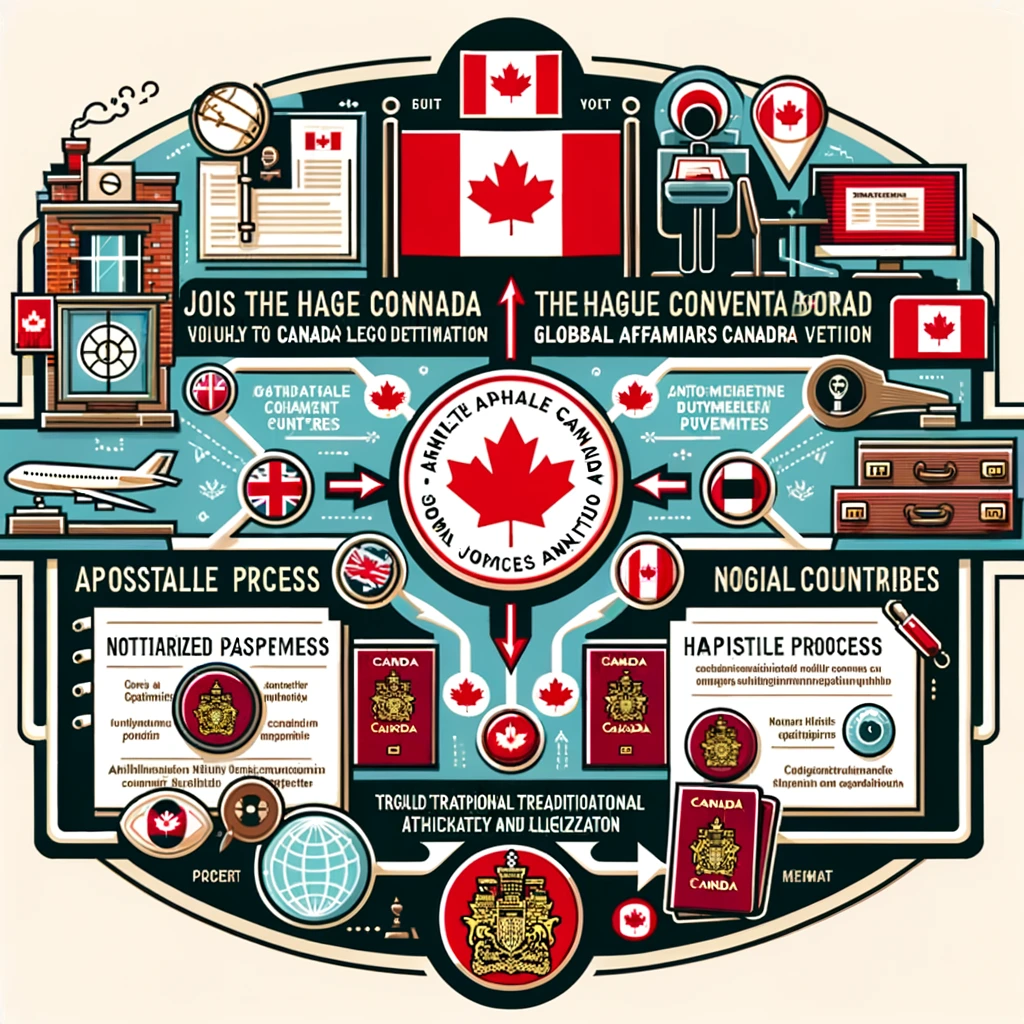Apostille or Authenticating and Legalizing Canadian Passport for International Use
Canada's recent accession to the Hague Apostille Convention has streamlined the process of using Canadian documents like passports and other identification documents abroad. For countries that are members of the Hague Apostille Convention, you now only need an apostille, which can be obtained from Global Affairs Canada or the provincial competent authority. However, for countries not part of this convention, the traditional authentication and legalization process is still required.
When it comes to Canadian passports and similar identification documents, it's crucial to understand their authentication for international use. Typically, due to their small, wallet-sized nature, these documents cannot be directly stamped. Instead, a notarized copy made by a Canadian lawyer or notary public is used. This step is essential for proving the document's genuineness to foreign authorities. Yet, it's worth noting that for international purposes, passport copies are often unnecessary. Many institutions, like airports and embassies, have systems to verify the authenticity of passports directly. In some cases, embassies in Canada might request a notarized copy of a passport for accompanying documents.
Embassy Legalization Guidelines for Canadian Passports:
- The usual procedure involves notarization, authentication by Global Affairs Canada or provincial authority, and legalization by the relevant embassy.
- Some embassies, like those of the Czech Republic and Spain, have specific requirements. The Czech Republic embassy does not process ID copies, while Spain's embassy issues a special copy directly.
- Original documents are often preferred internationally, especially for vital records like birth and marriage certificates, police checks, degrees, and some corporate documents.
Notarizing Canadian Passports for International Use:
- Notarized passport copies are sometimes necessary when original passports cannot be processed due to size constraints.
- Ensure the destination country’s embassy is comfortable with stamping a notarized copy. If not, seek alternative documentation.
- Avoid using expired passports; renew them if necessary, as the processing might take up to a month.
To ensure successful processing of Canadian passport copies:
- Obtain a notarized copy and have it apostilled or authenticated by Global Affairs Canada or provincial authority.
- Then, the embassy of the destination country can legalize it, akin to an apostille for member countries of the Hague Convention.
- This procedure applies to other personal identification documents as well.
- Given the complexities involved, consider engaging an expert for a smooth and efficient process.
For detailed guidance on apostille or authenticating and legalizing Canadian passports and other ID documents for use outside of Canada, especially under the new Hague Apostille Convention framework, consulting with specialists is highly recommended.


